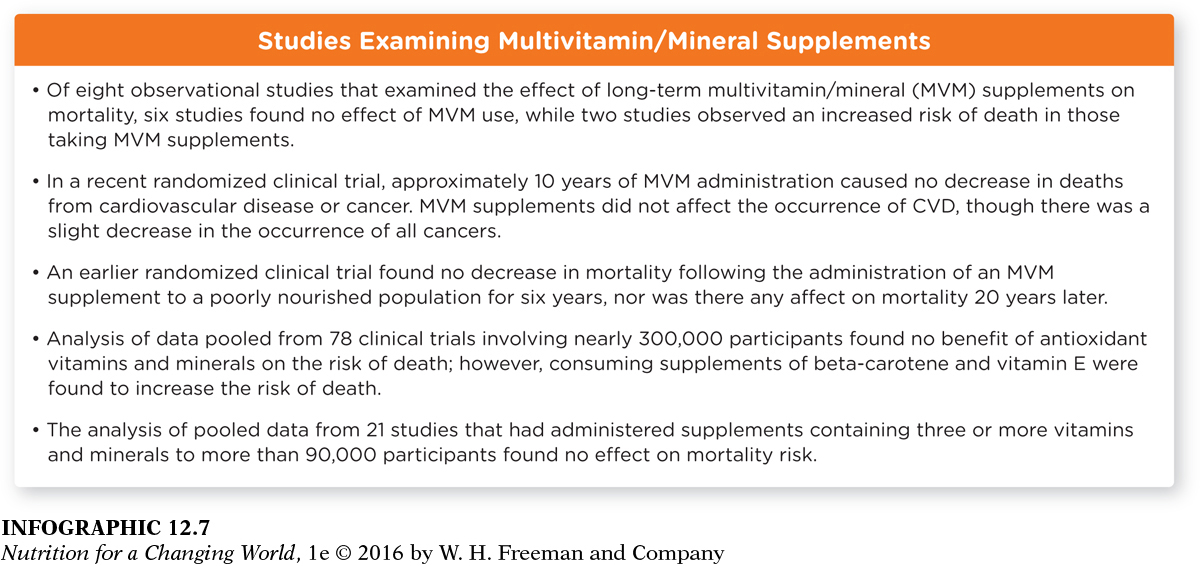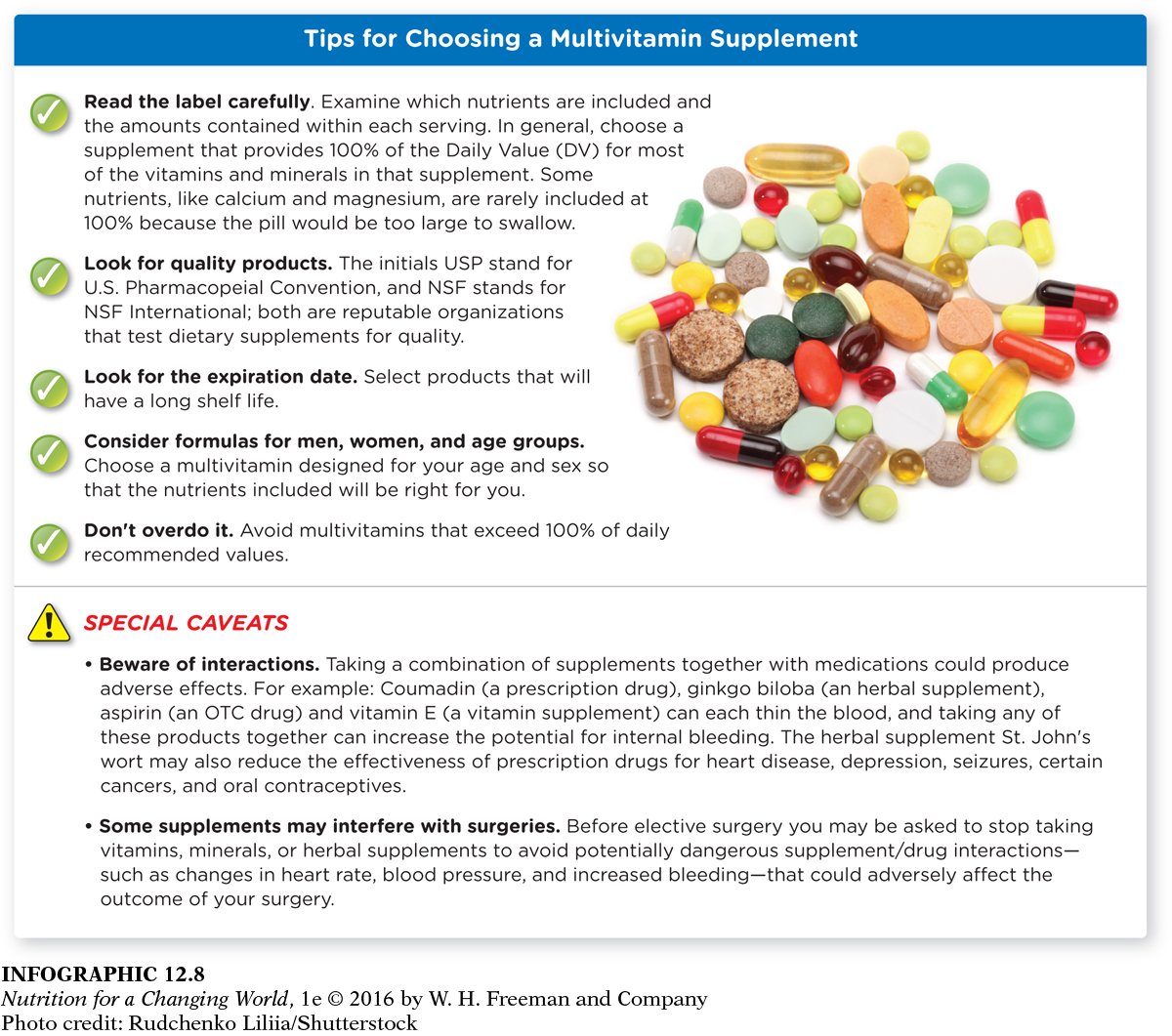ARE DIETARY SUPPLEMENTS HARMFUL?
Of course, purity is not the only important quality. The question that is much harder to answer is: Will this supplement actually improve the health of the general population? The National Cancer Institute studies led by Omenn and his colleagues suggest that some supplements are not only ineffective, but can actually be harmful. A small subset of studies, however, suggests that supplements may be beneficial for preventing certain conditions. (INFOGRAPHIC 12.7)

Question 12.6
 From the research findings summarized here, identify perhaps the best reason to NOT use vitamin/mineral supplements.
From the research findings summarized here, identify perhaps the best reason to NOT use vitamin/mineral supplements.
There appears to be no decrease in mortality risk from taking vitamin/mineral supplements, and, in some cases, supplement use may be harmful.
For instance, in 1997, researchers at Harvard University and its affiliated hospitals and schools began a clinical trial as part of the Physicians Health Study II to test whether moderate doses of multivitamins might prevent cancer or heart disease. “When you think about individual vitamin supplements tested in trials, there’s been an emphasis on high doses,” explains Howard Sesso, one of the study’s leaders and an associate professor of epidemiology at the Harvard School of Public Health. “We thought it would be interesting to have the opposite approach: It might be more appropriate to test a standard common multivitamin that has all the essential vitamins and minerals in combination, but in lower, more usual, doses that you would get in your diet.”
To do this, the Harvard researchers tracked the health of nearly 15,000 physicians older than 50 years who had been randomly assigned to take either a standard multivitamin or a sugar pill every day for an average of 11 years. Although the multivitamin takers did not end up with a reduced risk for heart disease, they were 8% less likely to develop cancer during the follow-
Sesso and his colleagues were very pleased with their study results, “But what we were immediately trying to think through was: How do you explain the findings?” Indeed, one major question is exactly how vitamins may protect against cancer. Another question is whether a person is better off getting vitamins through whole foods or through pills. “I think a lot of people would argue that the natural approach through food is the way to go,” Sesso says, but more research is needed to prove this point.
Supplements seem to pose the highest risks when they are what are known as “high-
